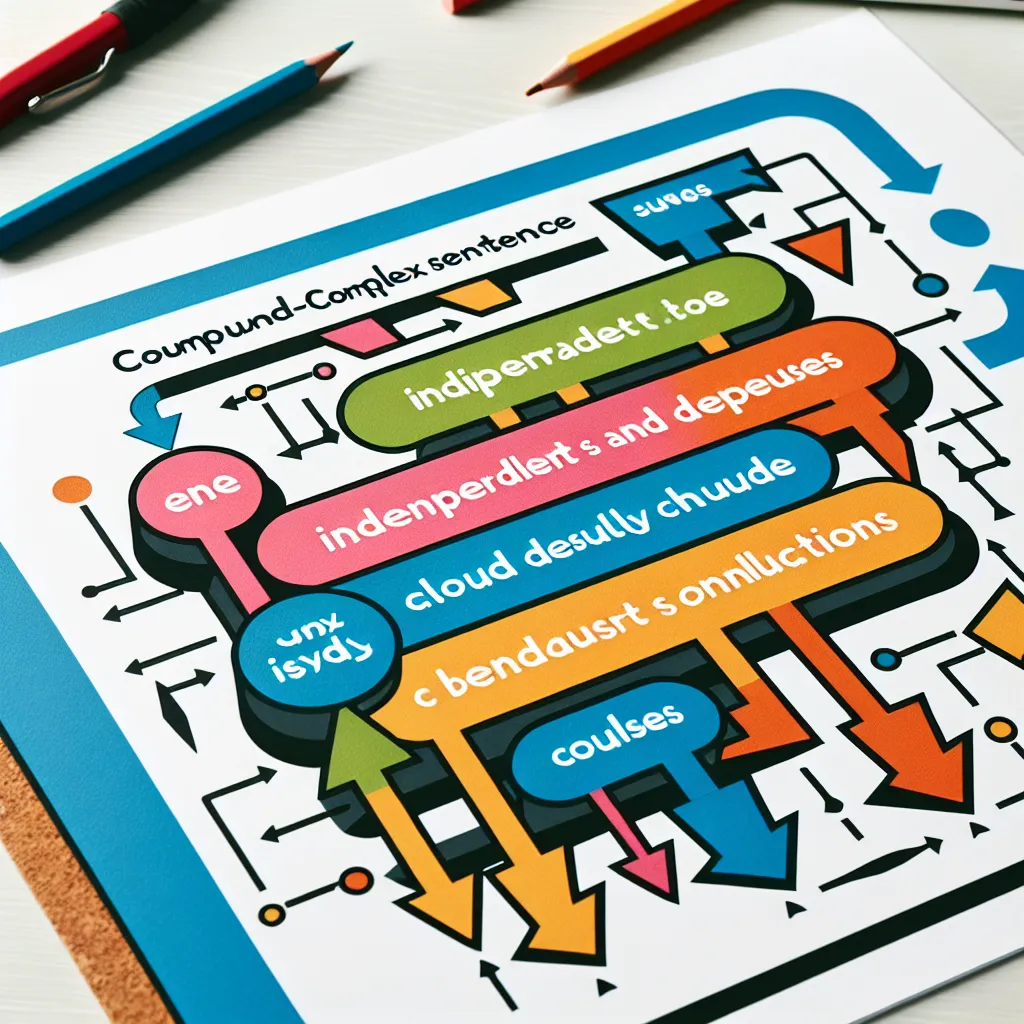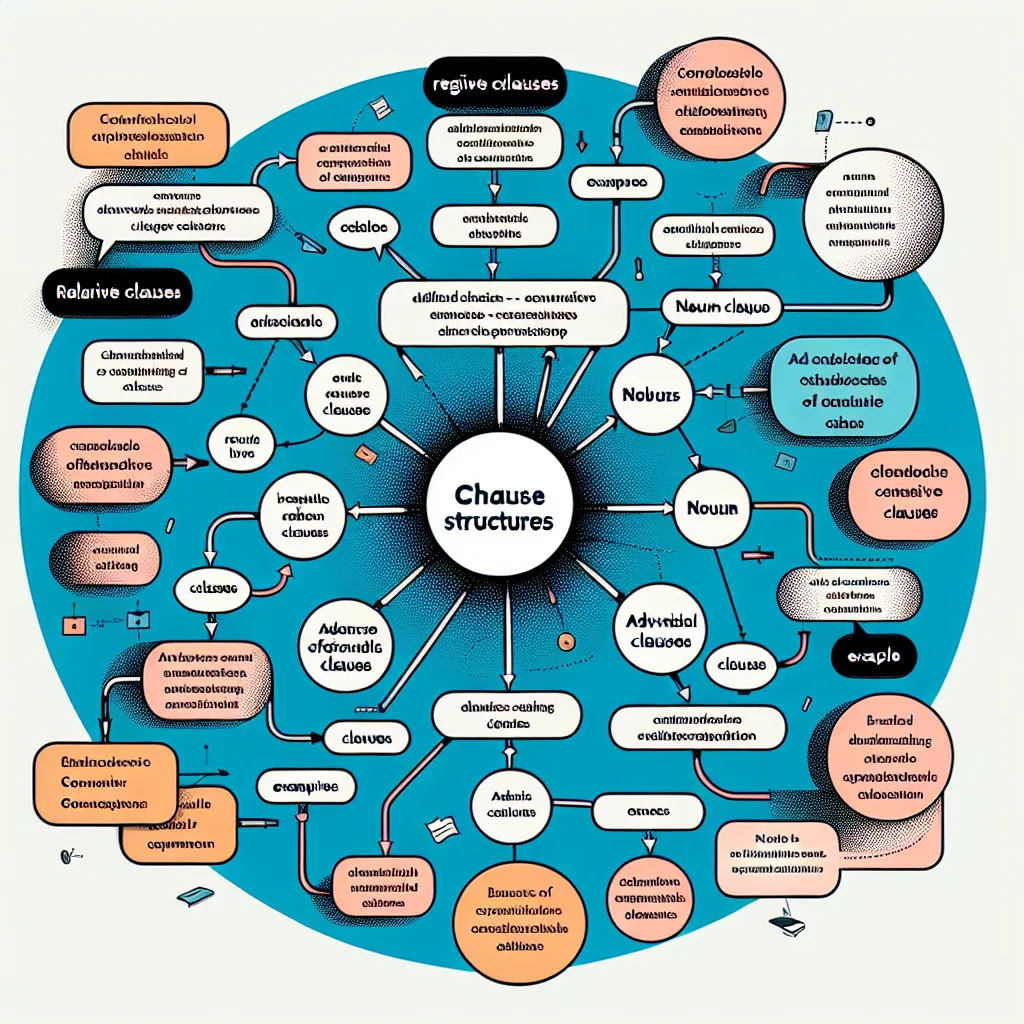Are you looking to elevate your English writing and speaking skills? One of the most effective ways to do so is by Mastering The Use Of Compound-complex Sentences. These sophisticated sentence structures can add depth and nuance to your communication, making your ideas more impactful and engaging. In this comprehensive guide, we’ll explore the intricacies of compound-complex sentences and provide you with practical tips to incorporate them into your English language repertoire.
Understanding Compound-Complex Sentences
What Are Compound-Complex Sentences?
Compound-complex sentences are a combination of compound and complex sentences. They contain at least two independent clauses and one or more dependent clauses. This structure allows for the expression of multiple related ideas within a single sentence, creating a more sophisticated and nuanced communication style.
For example:
“While I was studying for my exam, my roommate was playing loud music, but I managed to concentrate despite the noise.”
In this sentence:
- “While I was studying for my exam” is a dependent clause
- “my roommate was playing loud music” is an independent clause
- “I managed to concentrate despite the noise” is another independent clause
 Compound-Complex Sentence Structure
Compound-Complex Sentence Structure
Why Are Compound-Complex Sentences Important?
Mastering compound-complex sentences is crucial for several reasons:
- Enhanced Clarity: They allow you to express complex ideas more clearly by showing relationships between multiple thoughts.
- Improved Flow: These sentences can make your writing more fluid and less choppy.
- Sophisticated Expression: They demonstrate a higher level of language proficiency, which is particularly important for academic writing and professional communication.
- Better IELTS Scores: Using varied sentence structures, including compound-complex sentences, can boost your score in the IELTS Writing and Speaking sections.
Strategies for Mastering Compound-Complex Sentences
1. Start with the Basics
Before diving into compound-complex sentences, ensure you have a solid understanding of simple, compound, and complex sentences. This foundation is crucial for building more intricate structures.
2. Practice Identifying Clauses
Learn to distinguish between independent and dependent clauses. An independent clause can stand alone as a complete sentence, while a dependent clause cannot.
Example:
- Independent: “The sun was setting.”
- Dependent: “When the sun was setting”
3. Use Conjunctions Effectively
Mastering coordinating and subordinating conjunctions is key to creating compound-complex sentences.
- Coordinating conjunctions (FANBOYS: For, And, Nor, But, Or, Yet, So) connect independent clauses.
- Subordinating conjunctions (e.g., because, although, while) introduce dependent clauses.
Example:
“Because it was raining heavily, we canceled our picnic, but we decided to watch a movie instead.”
4. Vary Your Sentence Structure
Don’t always place the dependent clause at the beginning. Experiment with different positions to add variety to your writing.
Example 1: “While the storm raged outside, we stayed indoors, and we played board games to pass the time.”
Example 2: “We stayed indoors and played board games to pass the time while the storm raged outside.”
5. Practice with Real-World Materials
Read high-quality articles, academic papers, and literature to expose yourself to well-crafted compound-complex sentences. Try to emulate these structures in your own writing.
 Practice Compound-Complex Sentences
Practice Compound-Complex Sentences
6. Use Online Tools and Resources
Utilize grammar checkers and sentence structure analyzers to help you identify and construct compound-complex sentences correctly. Websites like Grammarly or Hemingway Editor can be valuable aids in your learning process.
7. Join Writing Groups or Forums
Engage with other learners and native speakers in writing groups or online forums. Share your sentences and get feedback. This collaborative approach can significantly accelerate your learning.
Common Mistakes to Avoid
When working with compound-complex sentences, be aware of these common pitfalls:
-
Run-on Sentences: Avoid connecting too many clauses without proper punctuation or conjunctions.
Incorrect: “I love cooking I often try new recipes my family enjoys tasting my creations.”
Correct: “I love cooking, so I often try new recipes, and my family enjoys tasting my creations.” -
Comma Splices: Don’t use a comma alone to join independent clauses.
Incorrect: “The weather was beautiful, we decided to go for a hike.”
Correct: “The weather was beautiful, so we decided to go for a hike.” -
Misplaced Modifiers: Ensure that modifying phrases are close to the words they modify.
Incorrect: “Running late for work, my car wouldn’t start.”
Correct: “Running late for work, I found that my car wouldn’t start.” -
Overuse: While compound-complex sentences are powerful, overusing them can make your writing feel convoluted. Balance them with simpler structures for clarity and impact.
Practical Exercises to Improve Your Skills
To truly master compound-complex sentences, regular practice is essential. Here are some exercises to help you refine your skills:
-
Sentence Combining: Take three simple sentences and combine them into one compound-complex sentence.
Example:- The movie was long.
- The movie was boring.
- I fell asleep during the movie.
Combined: “Because the movie was long and boring, I fell asleep during it.”
-
Sentence Expansion: Start with a simple sentence and expand it into a compound-complex sentence by adding independent and dependent clauses.
Simple: “The dog barked.”
Expanded: “When the mailman approached, the dog barked loudly, but it didn’t scare him away.” -
Sentence Analysis: Find compound-complex sentences in newspaper articles or books and break them down into their component clauses.
-
Writing Prompts: Use writing prompts that encourage the use of compound-complex sentences. For example, “Describe a time when you had to make a difficult decision and its consequences.”
-
Peer Review: Exchange your writing with a study partner and provide feedback on each other’s use of compound-complex sentences.
For more advanced grammar tips and exercises, check out our guide on Advanced Grammar Tips.
Conclusion
Mastering the use of compound-complex sentences is a valuable skill that can significantly enhance your English proficiency. By understanding their structure, practicing regularly, and avoiding common mistakes, you can elevate your writing and speaking to a more sophisticated level. Remember, the key to success is consistent practice and application in real-world contexts.
As you continue to develop your skills, don’t hesitate to explore more advanced topics, such as Improving English Syntax Skills. With dedication and the right approach, you’ll soon find yourself crafting elegant, complex sentences with ease.
We encourage you to share your experiences and questions in the comments below. How has learning about compound-complex sentences impacted your English skills? What challenges have you faced, and what strategies have worked best for you? Let’s continue this conversation and support each other in our language learning journey.




